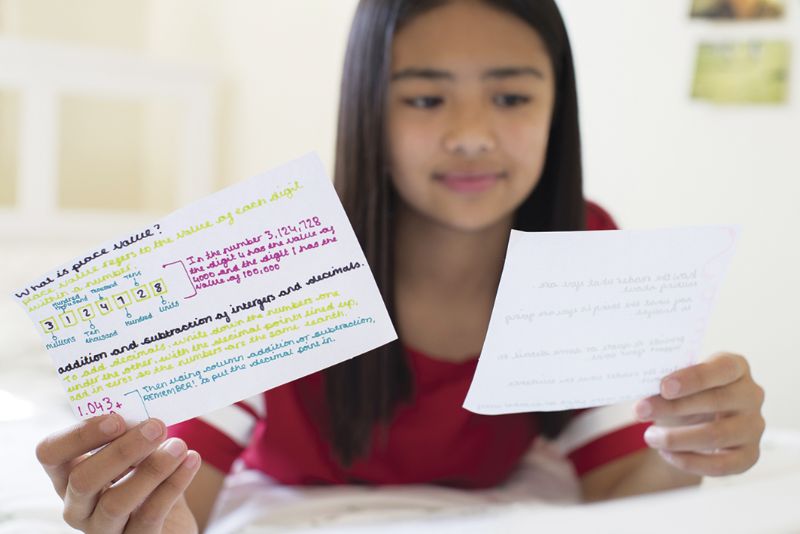- Home
- News, Articles & Reviews
We are hiring! Please click here to join our growing magazine delivery team in Gloucestershire!
Areas
Education, Training & Employment
Archive

Revision techniques and strategies
All Areas > Education, Training & Employment > Education & Employment
Author: Holly Prince, Posted: Friday, 20th March 2020, 09:00
Learning is an ongoing process, but when exams are looming, revision of topics is required so that information is fresh in your mind.
You may groan or cower at the mention of revision, and it may seem monotonous, but there are ways to make it more compelling. Do you know what kind of learner you are? There are three main learning styles: visual, auditory and kinaesthetic.
Visual learners
Visual learners like reading, pictures, diagrams and colours. When revising, write out key points onto flash cards, make them colourful and draw pictures to help you remember important facts.
Auditory learners
If you are an auditory learner, you prefer hearing information rather than seeing it, so listening to talks on videos or podcasts may be your preference. To review your past learning, speak aloud so that your ears hear the information again; record key facts onto an electronic device so that you can play them back to yourself over and over. You might use different voices to make it more interesting.
Kinaesthetic learners
Kinaesthetic learners like to feel and be doing. To aid your memory, use your hands to make models; walk about as you read or speak and use your body to provide actions that emphasize essential ideas.
In essence, the best way to learn is by using all three of these modalities – use colour and pictures, sounds and videos; use movement and get creative with making things.
It may seem obvious, but the more extravagant you can make your revision aids, the more memorable the information will be.
Other general advice for revision includes not leaving it all until the last minute! Start weeks in advance and pace yourself – maybe create a schedule of what you need to revise and when.
Setting a timer can be useful so that you revise in short bursts. Take breaks in between revision sessions, get away from your desk, and do something completely different to take your mind off it. This also gives your brain time to consolidate the information you have just been looking at.
You could also think up some incentives to get yourself going, and after you’ve done some revision make sure you treat yourself with something you enjoy like messaging friends or playing a game, or something that’s good for you such as a walk in the park or a healthy snack.
Exam time can be stressful for families as well as students themselves, so it helps when parents support their youngsters and encourage them to work hard and do well – without putting too much pressure on them. Give your children time alone to study, but also urge them to get on with it if they are being too lax!Copyright © 2025 The Local Answer Limited.
Unauthorized use and/or duplication of this material without express and written permission from this site's author and/or owner is strictly prohibited. Excerpts and links may be used, provided that full and clear credit is given to The Local Answer Limited and thelocalanswer.co.uk with appropriate and specific direction to the original content.More articles you may be interested in...


© 2025 The Local Answer Limited - Registered in England and Wales - Company No. 06929408
Unit H, Churchill Industrial Estate, Churchill Road, Leckhampton, Cheltenham, GL53 7EG - VAT Registration No. 975613000You are leaving the TLA website...
You are now leaving the TLA website and are going to a website that is not operated by us. The Local Answer are not responsible for the content or availability of linked sites, and cannot accept liability if the linked site has been compromised and contains unsuitable images or other content. If you wish to proceed, please click the "Continue" button below:




